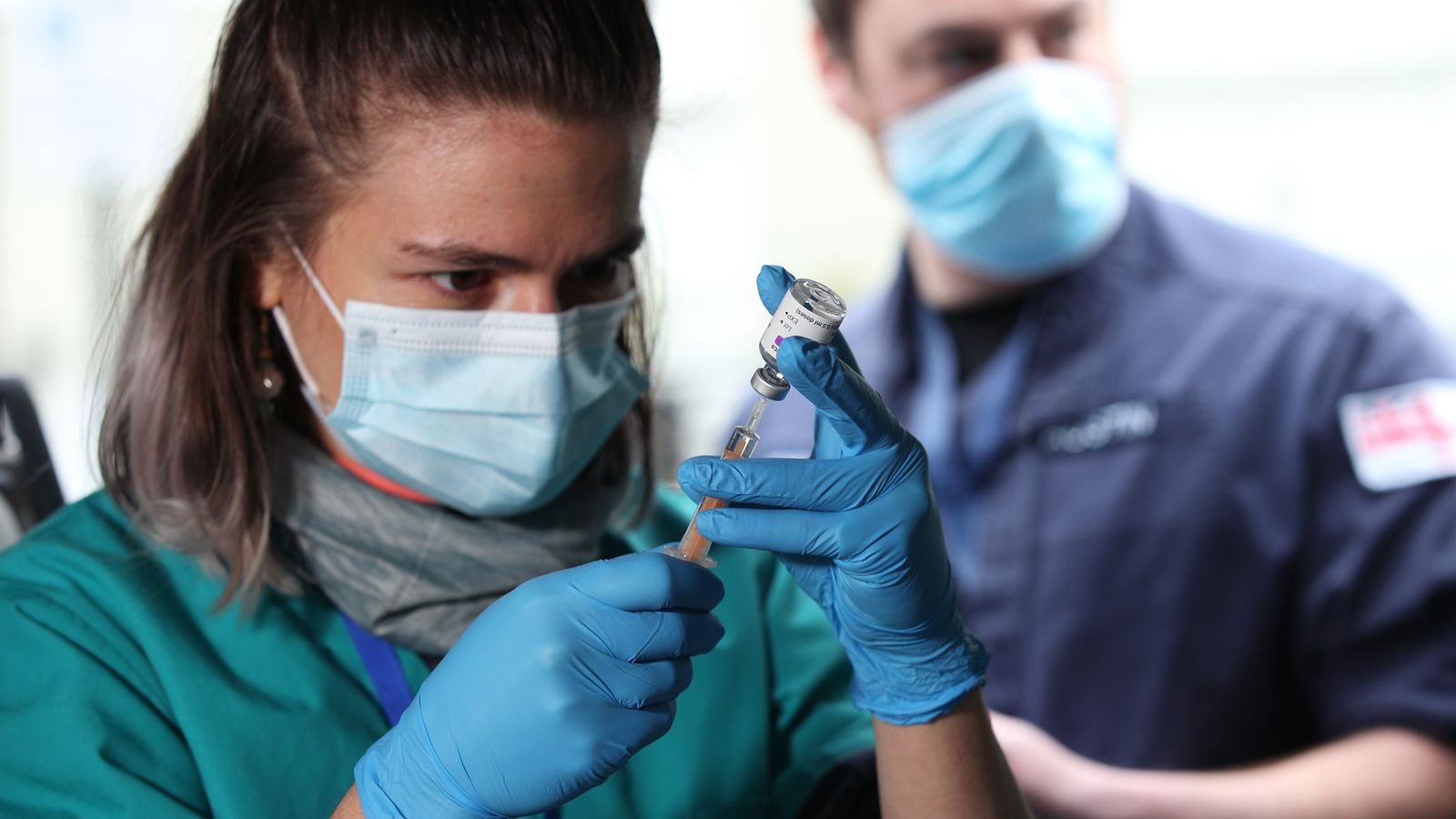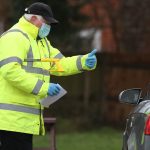Vaccinating people based on their age and not their profession is “the moral thing to do”, according to Health Secretary Matt Hancock.
The government has announced people aged 40-49 will be the next in line to get a coronavirus vaccine after all vulnerable groups and the over-50s are covered.
The Joint Committee on Vaccination and Immunisation (JCVI) said this plan would provide “the greatest benefit in the shortest time”.
Mr Hancock defended this position at Friday’s Downing Street news briefing following criticism from police figures and teaching unions.
He said: “Trying to come up with a scheme which prioritises one professional group over another would have been complicated to put in place and wouldn’t have done what we asked the JCVI to do, which I think is the right thing, which is to make sure we minimise the amount of people who die by using the vaccine.”
Mr Hancock was flanked by the deputy chief medical officer, Professor Jonathan Van-Tam, who also defended the government’s plan by citing data from the Office for National Statistics.
He said: “The ONS data on the occupations with the highest rates of deaths begins with restaurants and catering establishment managers and proprietors, following on to metalworking and machine operatives, food drink and tobacco process operatives, chefs, taxi and cab drivers.
“All of those death rates in the groups I mentioned are in excess of 100 deaths per 100,000 for males.
“If you look at teachers – and the ONS has now assembled some data on teachers for period 9 March last year to 28 December – the figures for male teachers is 18.4 per 100,000 for mortality.
“And that compares with a… comparable age of 31.4.
“So, if our objective is to save lives and reduce hospitalisations, then we have to start in a logical place.”
Please use Chrome browser for a more accessible video player
The priority ordering for the second phase of the rollout will be:
This timetable had sparked anger ahead of Friday’s Downing Street briefing, including from John Apter, the national chairman of the Police Federation of England and Wales.
Mr Apter said: “There’s real palpable anger from all levels within policing about how we have been completely disregarded and ignored in this phase.
“What is expected of policing does put them at risk. It does put them at risk of transmitting this virus.
“They’re being spat at, coughed at, rolling around on the ground with people, working in hospital environments, going into people’s homes. They can’t mitigate the risk of the virus.
“All of that means absolutely nothing. This is a very deep and damaging betrayal and it will not be forgotten.”
Earlier this week, Metropolitan Police commissioner Dame Cressida Dick said she felt “extremely disappointed” that officers had not been prioritised.
Please use Chrome browser for a more accessible video player
Teaching unions expressed similar dismay.
Paul Whiteman, general secretary of school leaders’ union Naht, said school teams “often occupy confined and unventilated spaces for long periods of time with only rudimentary PPE (personal protective equipment)”.
“The fact that it may have added some complexity to rollout is not a good enough reason not to prioritise the needs of committed professionals,” he said.
“A sick teacher is a teacher away from class, which will mean further disruption to pupils’ education and could well mean that they may need to be educated from home again.
“I am amazed by the continuing dedication of school teams. The government has let them down at every turn.”
Please use Chrome browser for a more accessible video player
Responding to such concerns, Professor Van-Tam said: “It’s more important to be in the queue, worry less about where exactly you are in the queue but be reassured the queue is moving really fast and that you’re going to get to the front of the queue because it’s moving fast.”
Mr Hancock added: “This is the fastest and simplest way to roll out the jab, our moral duty is to put saving lives first, and that’s what we’ve done.”
The decision has been backed by a number of scientists including Jonathan Ball, professor of molecular virology at the University of Nottingham.
He said: “We know that these vaccines are good at protecting from serious disease, and the likelihood of that increases with age.
“Therefore, continuing to target vaccine rollout according to disease risk makes sense, especially if this simplifies the rollout process.”
Currently, people in group five of the priority groups – anyone aged 65 and over – are being vaccinated.
Some areas have also moved on to group six – adults aged 16 to 64 with underlying health conditions.
A further 600,000 people who were identified last week as being at additional risk from COVID-19 were invited to book a slot at a vaccination centre or pharmacy on Thursday.
Boris Johnson maintains that all adults in the UK should be offered their first jab by 31 July. The prime minister wants everyone over 50 to get their offer by 15 April.
On Friday, a government spokesperson said the the UK “remained on course” to meet these targets, as the number of first jabs administered surpassed 19 million.






















